Stories > Growing Ideas
Growing Ideas
PHOTOS ELIJAH JOHNSTON, SUMMAIYA AFREEN, TAN YONG JING, SINGAPORE INTERNATIONAL FOUNDATION
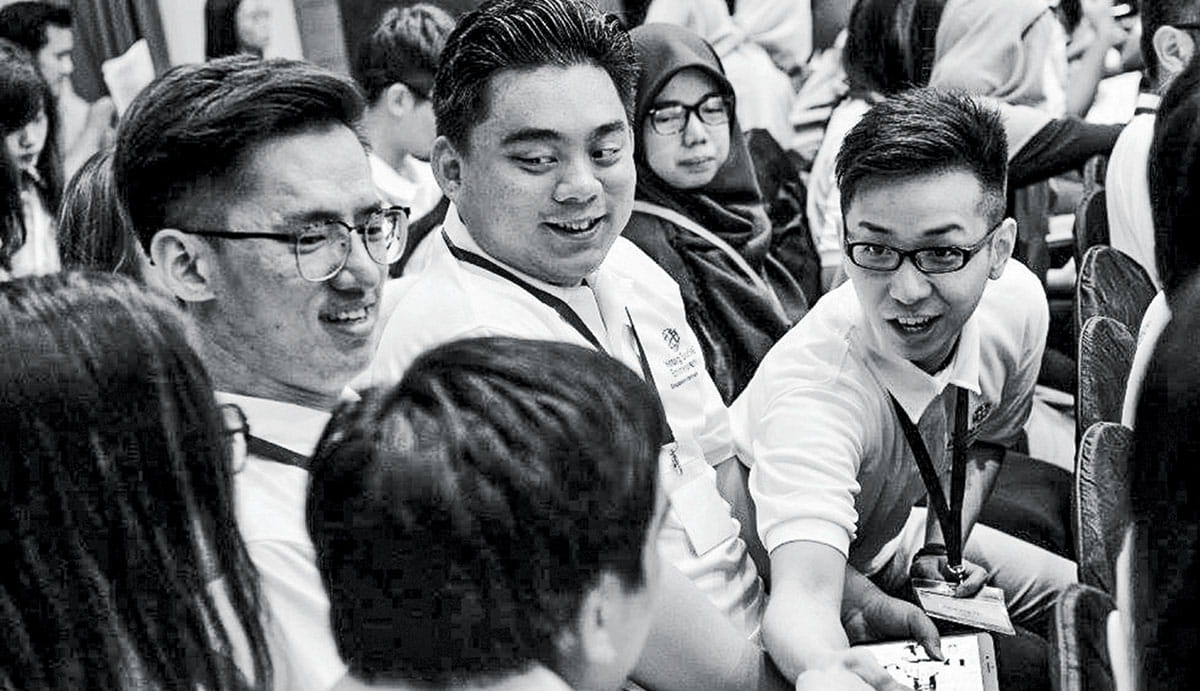
Never give up a networking opportunity! We can always learn something new from another person, and itʼs good to get feedback from as many sources as possible.
social enterprise in today’s interconnected world needs a network of collaborators spanning sectors and geographies. The SIF’s annual YSE programme brings together young change-makers through workshops, a mentorship scheme, and an overseas study trip. Phase 1 of 2017’s programme saw 138 young social entrepreneurs from 18 territories presenting 63 projects at a March workshop in Singapore. In Phase 2, 16 teams comprising 37 youths from 10 countries embarked on a mentorship scheme led by McKinsey & Company, Temasek International, and experienced entrepreneurs. It included a study visit to Mumbai, India, where the teams visited Dharavi, a slum that is home to more than 700,000 people.
Here, three participants share their personal experiences and takeaways from the trip.
TAN YONG JING, FROM SINGAPORE; CO-FOUNDER OF SIGNS
Mentorship is one of the greatest benefits of the YSE programme. Whenever we overlooked possible roadblocks or negative impacts, our Business Mentors gave us new perspectives and professional guidance. As our team is not strong in finance and marketing, we were lucky to be paired with three mentors from Temasek International.
They helped us realise that our concept poses inherent challenges; we are now working closely with them to refine it.
Our Entrepreneur Mentor, Christine Low, was in China during some parts of the mentorship period, but she helped us by sourcing equipment, offering us kitchen space for product development, and offered many helpful ideas.
The YSE programme’s true value is not in helping us secure funding, but in giving us opportunities to network and engage with other social enterprises.
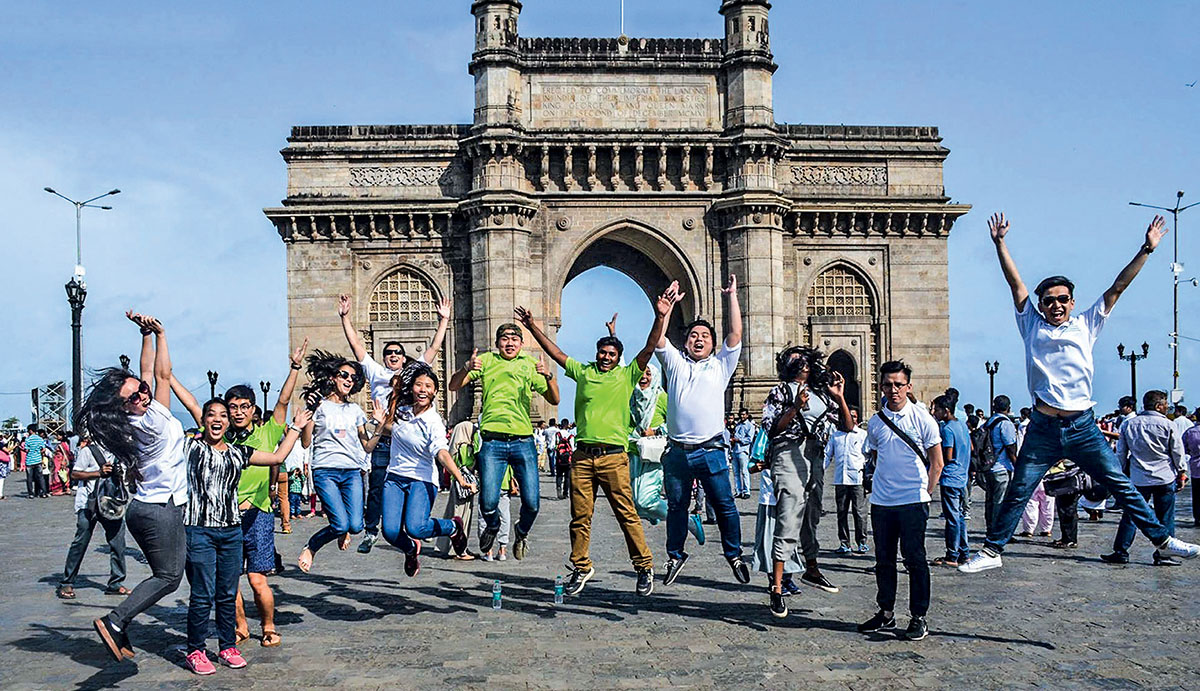
This group photo captures YSE 2017 participants hailing from Singapore, India, Taiwan, Thailand, Malaysia, and the Philippines! Regardless of nationality, religion or background, everyone here freely shared their knowledge and experience with one another.
We’ve been able to share what we have, and learn from others in return. I am grateful to the SIF for the opportunity to be exposed to different cultures and social issues through the study visit.
Signs encourages inclusivity by providing Singapore’s deaf community with gainful employment, training them to sell crepes and soft-serve ice cream. The Mumbai experience showed us many opportunities for collaboration. We have different target beneficiaries, but we are open to using one another’s platforms to raise awareness. This is the true beauty of social entrepreneurship.
A deaf advocate we are working with has shared that while many people are eager to help the deaf community, few are providing the right aids. So I’ve learnt that you can’t help someone effectively until you get to know them. We’re now learning sign language and spending more time with the deaf community.
ELIJAH JOHNSTON, FROM THE U.S.; CO-FOUNDER OF TROVEKO
The YSE programme offers so much diversity in terms of nationalities, religions, ethnicities, ages, interests, skill sets, backgrounds, and social enterprise goals. We are united by a common goal to use business as a vehicle to solve important problems. Being with other problem-solvers helps you take a more critical approach to your work. I tried to have conversations with everyone during the programme, because there was so much I could learn from them.
I’m grateful to experienced mentors, like my Entrepreneur Mentor Jan Croeni, who helped me make sense of the lessons from the trip.
The trip was centred on themes that were fleshed out via workshops and site visits. Once, we watched a dabbawalla packing lunches onto his bike before heading off on his delivery route.
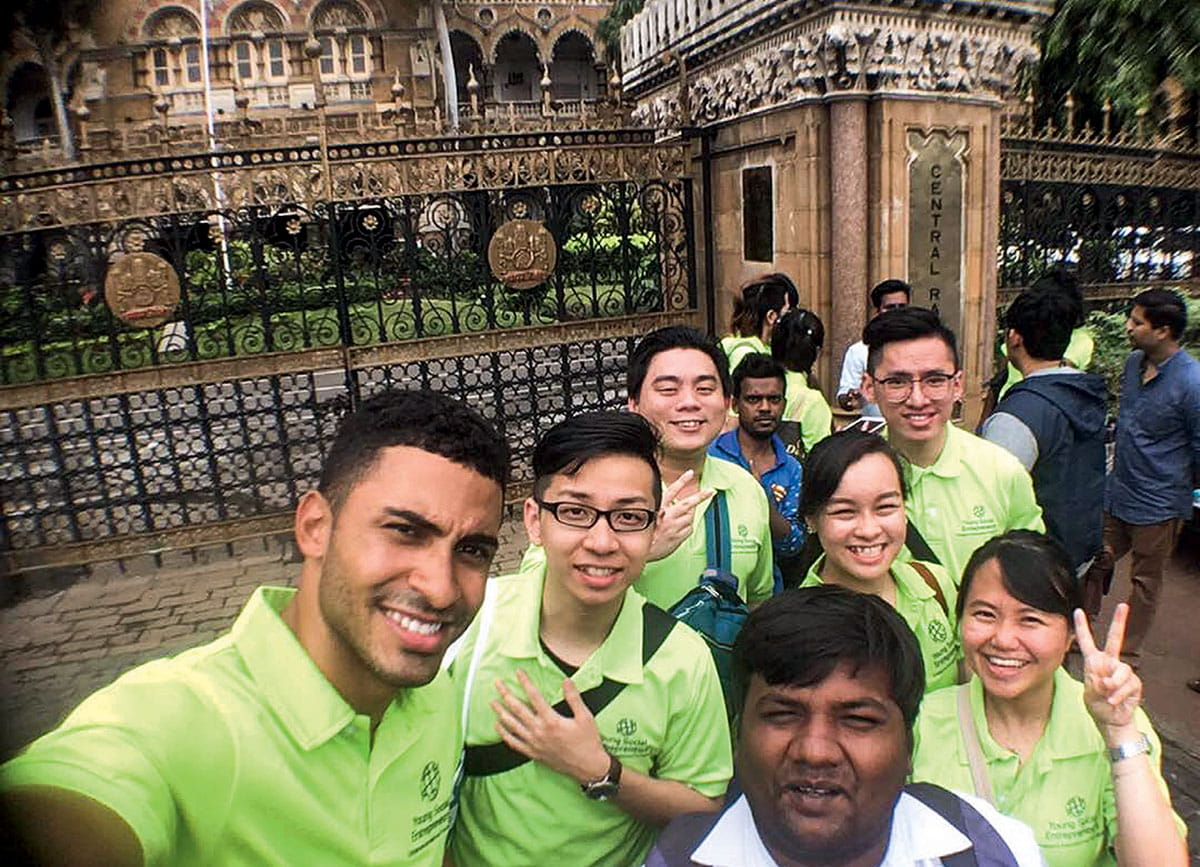
I took a wefie with my YSE group and our tour guide from Reality Tours, Jitu Jain, in front of the oldest train station in Mumbai. At the end of our tour through Dharavi, Jitu said: “Most people instantly think of the slums as a place of despair, but I want you to see the slums as a place of hope.” It really changed my perspective.
Dabbawallas are men who, as part of a lunchbox delivery and return system, transport hot lunches from homes and restaurants to office workers in Mumbai. They run an efficient system without using digital technology at all. This really drives home the fact that human ingenuity and precision are not to be sniffed at.
I learnt that to build a sustainable organisation, you have to identify the root cause of the challenge you want to address, and not just deal with its symptoms. Jan’s pointers, combined with insights from a lecture by Pragya Mishra from Ashoka (a leading global investor and mentor for social enterprises), made me decide to focus on funding sustainable solutions in remote rural areas.
The study visit was also a great reminder that empathy must be the backbone of social enterprise. Many people feel sorry for those living in emerging economies, but, in many cases, the people on the ground are actually happier, more grounded, and fulfilled, than the people feeling sympathy for them. There is no cookiecutter approach to pulling people out of poverty; everything happens within particular contexts, conditions, and culture. That was my biggest lesson from the trip. Things are never black and white, and many developed nations aren’t good examples for developing nations to follow. It was amazing to see how some local solutions are lifting people out of poverty. One example is BOHECO, which found a variety of uses for hemp, a plant that is naturally abundant in India. Finding out the complexities and intricacies specific to this one country has been an eye-opener. My goal is now to have local teams running Troveko’s operations. Troveko digitally connects rural artisans with travellers who want educational or meaningful, not just enjoyable, trips. We want tourism to be a means to an end, not an end in itself – the desired end is to drive impact that can one day be sustained without our help. And on a more personal note – social enterprises usually make a low return on their investments, so it was also very encouraging to learn of opportunities to get financial backing.
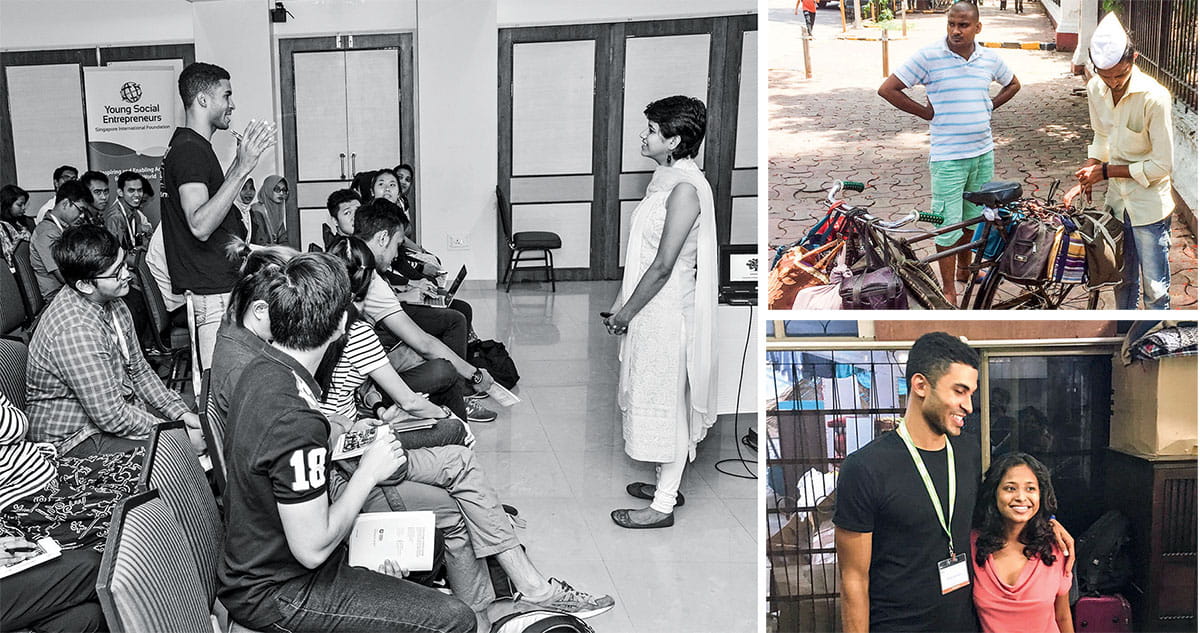
Our YSE group visited the innovation centre at the Society for Innovation and Entrepreneurship, at the Indian Institute of Technology, Bombay. Opportunities like this were a daily affair during the trip; We got to watch a dabbawalla packing lunches onto his bike before heading off on his delivery route; I am with a member of Kranti, a non-profit non-governmental organisation that supports the daughters of sex workers and former sex workers in India. The photo was taken after a dialogue between YSE and the beneficiaries of Kranti.
SUMMAIYA AFREEN, FROM INDIA; CO-FOUNDER OF LAKSHYA JEEVAN JAGRITI
Mentorship is invaluable for entrepreneurs. Mentors push your limits and give you confidence by believing in what you can do. It is one of the great things about being in the YSE programme.
My Entrepreneur Mentor Betty Sun and I connected really well and I am thankful for her time and valuable input. She has been a great support in helping us overcome challenges and even encouraged us to contact her any time we need her, despite her busy schedule. Indirect mentorship, like what we received from Mumbai Angels, an Indian investment network that connects start-ups with entrepreneurs and professionals who are willing to fund them, is valuable too.
Meeting established entrepreneurs at the World Cafe session and visiting the Tata Institute of Social Sciences (TISS; a research institution in Mumbai) were eye-openers. The social entrepreneurs (one was from Even Cargo, a YSE alumnus) shared their personal and organisational journeys, and talked about their work and upcoming projects. At TISS, I talked with some final-year students about our tendency to make assumptions about problems in our communities, and how after working with our target beneficiaries, we come away with a different perspective. I had negative assumptions about Dharavi prior to the trip because it is known as a slum, but that view has changed. There are multiple businesses located there, including recycling and textile companies. They contribute significantly to Mumbai’s gross domestic product.
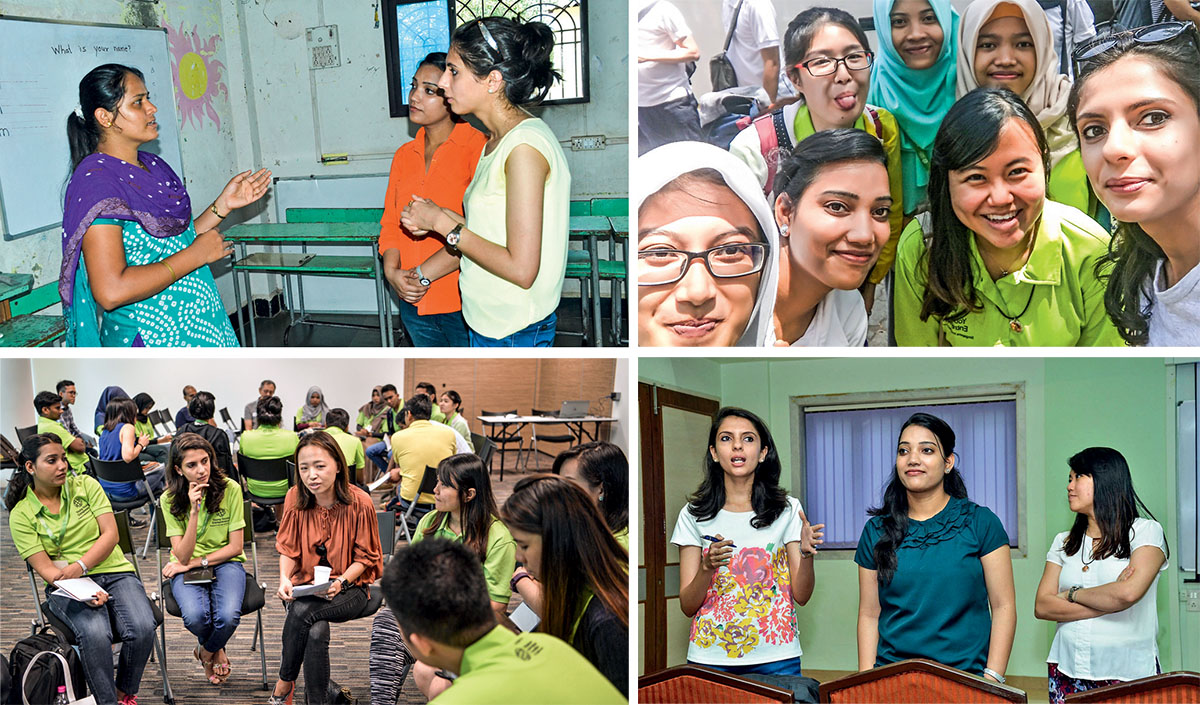
We made a mock pitch to Mumbai Angels, after which they helped us with feedback on how to improve the actual pitch that we will make to a panel of potential investors; Teaming up with other YSE programme participants from different countries was a great opportunity to gain new insights and perspectives; Betty Sun (in brown), my Entrepreneur Mentor, facilitating one of our group discussions during the study trip.
The diversity of cultures and ideas we were exposed to in the YSE programme, especially during the study trip, was refreshing. I made many wonderful connections. We got to know each other’s cultures, values, and work situations.
We also had discussions, like on how the Indian education system differs from that in other countries, and about the empowerment of women.
Lakshya Jeevan Jagriti empowers women – specifically mothers and daughters – in India by improving their literacy and helping them achieve higher education. The Singaporeans I spoke with shared that women in their country are empowered and independent, and that the Government supports their being equal contributors to the economy. Several of the Indonesian and Malaysian participants who were part of the discusion shared that even though many women in their countries marry early, they are still independent and usually continue studying or working after marriage. This is still a very difficult path for women in India to follow, but I now see many ways in which their lessons and experiences can apply to my team’s efforts.
I am also looking to implement a useful impact measurement model that Pragya Mishra from Ashoka shared with us. I feel that it will help us refine our focus.
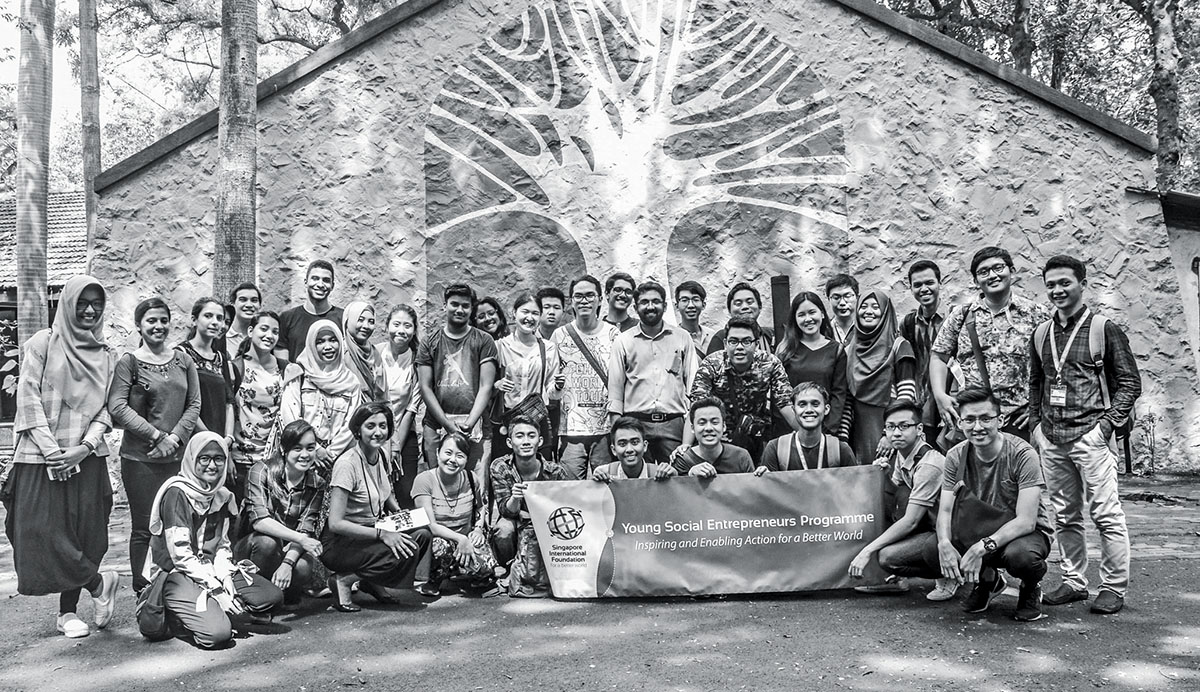
The World Cafe session, at which we got to meet several experienced entrepreneurs, and our visit to the Tata Institute of Social Sciences, were two enriching and fulfilling parts of the study trip.
